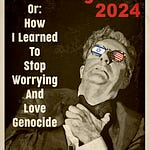Time and time again, the human rights attorney Noura Erakat writes, we see evidence of the law’s assumed insignificance in the dispossession of Palestinians. Great Britain remained committed to establishing a Jewish national homeland in Palestine despite its legal duties as the Mandatory Power to shepherd local Arab peoples to independence. The Permanent Mandates Commission remained committed to the incorporation of the Balfour Declaration into the Mandate for Palestine, in contravention of the Covenant of the League of Nations, which, in discussing the disposition of the “communities formerly belonging to the Turkish Empire” stated that “the wishes of these communities must be a primary consideration.” The United Nations proposed partition of Palestine without legal consultation and in disregard of the existing population’s “well-being and development,” which the same Covenant had declared to be a “sacred trust of civilization.” Zionist militias established Israel by force, without regard to the Partition Plan’s stipulated borders. The United Nations accepted Israel as a member despite the state’s violation of the nondiscrimination clauses of the Partition Plan and of the UN’s own condition that Israel permit the return of forcibly displaced Palestinian refugees.
The very origins of the Palestinian-Israeli conflict, Erekat continues, suggest that it is characterized by outright lawlessness, and yet conflicts have been as defined by astute attention to law and legal controversy as this one. Do Jews have a right to self-determination in a territory in which they did not reside but settled? Are Palestinians a nation with the right to self-determination, or are they merely a heterogeneous polity of Arabs eligible for minority rights? Did the United Nations have the authority to propose partition in contravention of he will of the local population? Are the West Bank (including East Jerusalem) and the Gaza Strip “occupied,” as a matter of law, that is, are they recognized as such by law? Does Israel have the right, in law, to self-defense against Palestinians living in the Occupied Territories? Do Palestinians have the right to use armed force against Israel? Is the route of Israel’s Separation barrier, built predominantly in the West Bank, illegal? Is Israel and apartheid regime?
Joining me to discuss these issues, examined in her book Justice for Some: Law and the Question of Palestine, is the human rights attorney and assistant professor at Rutgers University Noura Erakat.
Thanks for supporting the Chris Hedges Report.












The Chris Hedges Report with human rights attorney and author Professor Noura Erakat on Israel's manipulation of legal systems to perpetuate its campaign of erasure of the Palestinians.